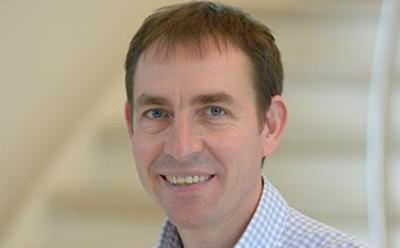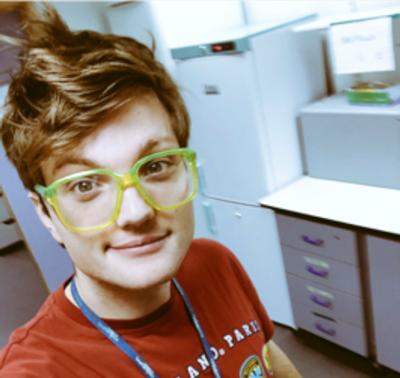.jpg_SIA_JPG_fit_to_width_INLINE.jpg)
Dr Sophie Benjamin (Postdoctoral researcher)
"I won a Doctoral prize at the end of my PhD in coordination chemistry examining ligands containing the unusual elements antimony and bismuth. One of my supervisors, Professor Gill Reid, suggested I apply for a grant from the Science and Technology Facilities Council to stay on at Southampton and develop my research. I'm now working with thermoelectric materials, an area of chemistry with great potential, researching how to improve the efficiency of systems to convert heat into electricity at a molecular level.
"Although I'm at the beginning of my academic career and postdoc posts are short term, I would say Chemistry at Southampton is a good place to be for a female researcher. There are many successful women academics such as Gill who are very supportive and the environment and culture in the department are positive. Although, in academia as a whole, more work remains to be done to ensure equal opportunities for all, the University of Southampton is addressing these issues."
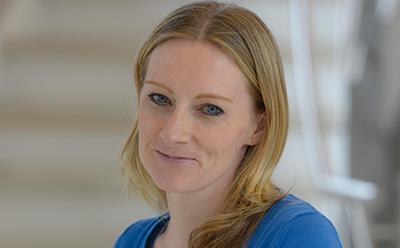
Dr Lynda Brown (Senior Research Fellow)
"Colleagues in Chemistry were very supportive as I returned to work as a postdoctoral research fellow on a 60 per cent basis after having my two children. The University's childcare voucher scheme was invaluable at that time. In 2009, I was awarded a Royal Society Dorothy Hodgkin Fellowship, a forward thinking grant that allows part-time working and career breaks for personal reasons.
"I am able to change my working days at the University to fit in with commitments at work and home. In addition, my husband and I can divide the school run duties between us. He too is a University academic and can also work flexibly. This has allowed both of us to spend precious time with my children while giving them an important example of how mums can be successful career women too. In addition, I can often work extra days in term time and ‘bank' time off to take during the school holidays."
"Over the years, I have appreciated mentoring from the senior female academics within the department and I now would like to support younger female researchers. As my children are growing older and becoming more independent, I have stepped up my hours to four days a week with a view to full-time working when my situation allows."
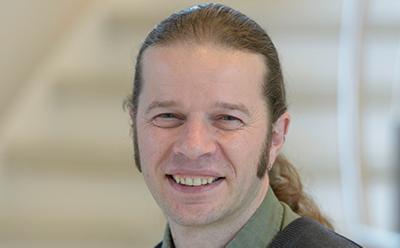
Professor Simon Coles (Professor and Director, UK National Crystallography Service)
"Chemistry has traditionally been a male-dominated subject but the University of Southampton has a good reputation for encouraging female students and academics to progress in their careers and has a high degree of diversity in many respects - I find it a highly tolerant, supportive and relaxed environment to work in. However, more remains to be done. The gender ratios are approaching 50/50 at undergraduate level and increasing numbers of women stay on for PhDs but we need to address the issues surrounding postdoctoral research. To succeed these days, you need to take two or three short term posts, often in different parts of the world and this deters quite a number of people, male and female. Good opportunities at the best research-intensive universities are also in short supply. Early career female researchers in their late twenties and thirties may want to start a family at this time and it can be a challenge to combine these two aspects of one¹s life.
We believe the £9,000 a year undergraduate fees may work in Chemistry's favour as young people want to take a high value degree that can open doors to successful careers in many areas, not just science. If we continue to prosper, there will be more job opportunities here for the best scientists, whether male or female and regardless of how diverse a background they have."
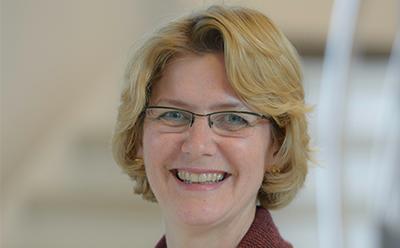
Professor Andrea Russell (Professor of Physical Electrochemistry)
"I moved to the University of Southampton in 1997 and became a Senior Lecturer in 2001. Two years later, I was supported and encouraged to apply for the post of Reader, both by senior colleagues in the department and by the University through an initiative aimed at women at the Senior Lecturer/Reader transition, which consisted of the formation of Action Learning Sets. These were professionally facilitated networks of approximately ten women from across the University who helped each other to overcome any real or perceived barriers to promotion; I still consult these colleagues in matters of career development today.
In 2004, I was given the opportunity to take part in the University's Senior Management Development Programme to develop my leadership skills and learn more about how the University is run. This allowed me to get to know colleagues from across the University Departments and Professional Services and has provided lasting benefits to my career, especially in my current role as Deputy Head of Chemistry (Education).
In 2006, I was encouraged to apply for promotion to Professor and was supported throughout the process by the department and was successfully promoted in the spring of 2007. At the same time, I took part in another peer-support group set up by the University to support senior women. I am very fortunate to work in such a supportive environment at Southampton. In turn, I endeavour to continue the good work by mentoring junior colleagues and take part in the Women into Leadership programme for senior female staff."
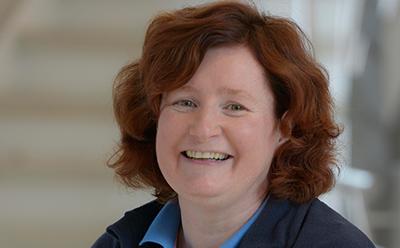
Julie Herniman (Experimental Officer in Mass Spectrometry)
“I started my career at Cardiff University where I became a research technician in the Geology Department after my first degree in Geography and Geology at Plymouth. I worked in South Wales for nine years and took a part-time masters degree in Environmental and Engineering Geology, much of the work involved analysing rocks, sediments and soil and I was also required to do some field work.
“It was a complete change when I moved to Southampton in 1998 to work in Mass Spectrometry. I saw a post advertised as technician working with Dr John Langley and thought it was time for a change. My husband had taken up a postdoc position at the National Oceanography Centre at the time so it seemed a good move.
“There was a lot to learn, we have 11 different mass spectrometry instruments and I had to understand and learn how to use them all so I could contribute to the research within the School. Shortly after I arrived, the mass spectrometry laboratory moved to a new building so we had to pack up and transfer all the equipment to the new location which was a challenge.
“I like my job as it involves a lot of problem solving and is very different from day to day. Part of the facility is open access and we are mainly working with postgraduate students on the analysis of small organic molecules and natural products, supramolecular complexes, peptides and large biomolecules, particularly oligonucleotides and developing new mass spectrometry methods.
“We largely work office hours but the University allows us to be flexible to cope with eventualities and that can be very useful.”
